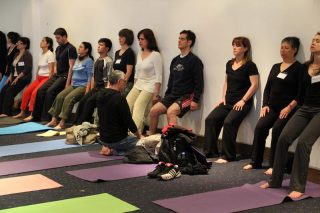
Stress: It’s Not in Your Head, it’s in Your Nervous System
Have you ever been told when you’re stressed to stop worrying and just relax? That it’s all in your head? It would be nice if it were that simple. But it’s not.
Physiology research shows that the stress response memory lives in your nervous system. Take for example exposure to a stressful event. One in which you felt helpless, hopeless, and lacked control. In this case your autonomic nervous system (ANS) is engaged. This is the part of the nervous system responsible for controlling unconscious bodily actions like breathing. To be more specific, it was……
read more: http://upliftconnect.com/stress-its-not-in-your-head-its-in-your-nervous-system/
Read More





